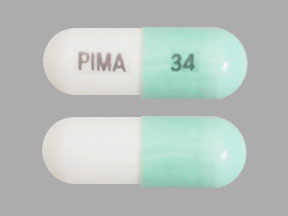
Nuplazid Coupons & Savings Card – Discount Prices from $5129.88
My prescription
Edit
34MG, Nuplazid (30 Capsules)
Select pharmacy

Albertsons
$5129.88
COUPON PRICE
Walgreens
$5306.56
COUPON PRICE
Walmart
$5322.06
COUPON PRICENuplazid savings card
Show this card to your pharmacist
Albertsons
$5129.88
BIN
ID
PCN
GRP
019876
LH0AC9CFD2
CHIPPO
LHX
Powered by
More prescriptions for Parkinson's disease
More prescriptions for Parkinson's disease
Price history for Nuplazid
30 Capsules, 34MG
Average retail price for Nuplazid
Average SaveHealth price for Nuplazid
Our price history data is based on aggregated prescription data collected from participating pharmacies in America. Our prescription data updates daily to reflect the latest price changes. If you notice a missing data point, it means there wasn't sufficient data available to generate a monetary value for that date.
*Retail prices are based on pharmacy claims data, and may not be accurate when we don't have enough claims.
Nuplazid dosage forms
Dosage Quantity Price from Per unit 34MG 30 Capsules $5129.88 $171.00
| Dosage | Quantity | Price from | Per unit |
|---|---|---|---|
| 34MG | 30 Capsules | $5129.88 | $171.00 |
What is the drug NUPLAZID used for?
Nuplazid is used to treat hallucinations and delusions associated with Parkinson's disease psychosis.
Why is NUPLAZID so expensive?
NUPLAZID is expensive due to several factors, including the costs associated with its research and development, clinical trials, and the regulatory approval process. Additionally, it is a specialized medication used to treat hallucinations and delusions associated with Parkinson's disease psychosis, which may contribute to its pricing. The cost also reflects the investment in ongoing research and the need to recoup these expenses. Pricing strategies by pharmaceutical companies and market exclusivity can also play a role in its high cost.
How is NUPLAZID different from other antipsychotics?
NUPLAZID (pimavanserin) is different from other antipsychotics primarily because it is specifically approved for the treatment of hallucinations and delusions associated with Parkinson's disease psychosis. Unlike typical antipsychotics, NUPLAZID does not have dopaminergic activity, which means it does not block dopamine receptors. Instead, it acts as an inverse agonist and antagonist at serotonin 5-HT2A receptors, which is thought to contribute to its therapeutic effects. This mechanism helps reduce the risk of worsening motor symptoms in Parkinson's disease patients, a common issue with traditional antipsychotics.
Is NUPLAZID 17 mg being discontinued?
As of the latest available information, there is no indication that NUPLAZID 17 mg is being discontinued. It is always advisable to check with a healthcare provider or pharmacist for the most current information regarding medication availability.
How does pimavanserin differ from clozapine?
Pimavanserin and clozapine are both used in the treatment of psychiatric conditions, but they have different mechanisms of action and indications. Pimavanserin is primarily used to treat hallucinations and delusions associated with Parkinson's disease psychosis. It works as a selective serotonin inverse agonist and antagonist, particularly at the 5-HT2A receptor.Clozapine, on the other hand, is an atypical antipsychotic used for treatment-resistant schizophrenia and to reduce the risk of recurrent suicidal behavior in patients with schizophrenia or schizoaffective disorder. It acts on multiple neurotransmitter receptors, including dopamine and serotonin receptors, and is known for its efficacy in treatment-resistant cases but also for its potential side effects, such as agranulocytosis.In summary, pimavanserin is more selective in its action and is used for Parkinson's disease psychosis, while clozapine is used for treatment-resistant schizophrenia and has a broader receptor profile.
